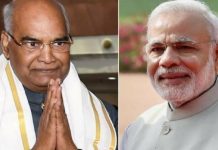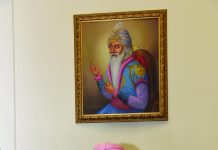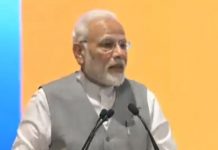
EDITED EXCERPTS FROM AN INTERVIEW
Your model divides society into the ‘castes’ of soldiers, merchants and sages. In what form and shape do you see that in today’s India?
People’s occupation matters a lot to their political values. What you do for work makes quite a difference to your political attitude. My book, Merchant, Soldier, Sage, uses quite an ancient idea, really, that society is divided into merchants, soldiers and the experts who are intellectuals or priests. The workers are a fourth group. These were called varnas in India. Hierarchies between these groups are bad and need to be combatted. Looking at these categories helps us to understand the world. Because our values are very much influenced by our occupations.
Of course, since those ancient times these categories have become many more, they have proliferated. So if we look at, say, what I call the sage group, originally they were priests, then they were divided between clerics and clerks, that is, between priests and bureaucrats, and in the 1960s the bureaucrats against bifurcated into the so-called creative groups who have had a lot of autonomy at work and were highly educated.
When it comes to India, you have big tensions between bureaucrats and the technocrats on the one hand, and the merchants on the other, at the elite level. Of course, you also have tensions between those elite groups and workers. The merchants are often interested in free trade and finance. The technocrats are interested in expertise. Those often come into tensions. And conflicts within societies are often structured along conflicts between these different groups.
Don’t the soldiers and the sages now work for the merchants?
Exactly. That’s the argument of my book. Over time, you find changes in the dominant group and the dominant value systems imported by it. Until the 1940s, warrior aristocrats were dominant such as in the British empire, Russia and Germany. In India, the British aristocrats had gone very well with the maharajas. And not only were these groups powerful but also those value systems — hierarchy, feudalism, caste system — were powerful. But since then, that group has declined in power and the other groups have been competing to take power.
Generally, workers have not been very powerful and the collectivist values they have had. Communism was, of course, not just entirely a worker thing. It had many other aspects. It was quite militaristic as well. Worker values had more power in Europe, particularly after World War II under the social democratic order. Although they didn’t have absolute power, as the technocrats had more power. But recently, it is the merchants who have become more powerful.
But social democrats in Europe face a crisis of identity. You can hardly think of them as social democrats of the 1960s. Is the concept of social democracy over?
The high point of social democracy was after World War II in the 1950s and the ’60s when new social contracts were built. These were quite technocratic regimes, really, but they did include many of the working classes. There was a major crisis in the 1970s and the ’80s as most groups on the Left moved to a more merchant position. I don’t know if that crisis is terminal. (The) 2008 (financial crisis) was a crisis of the merchant order. But it hasn’t overthrown the merchants yet.








